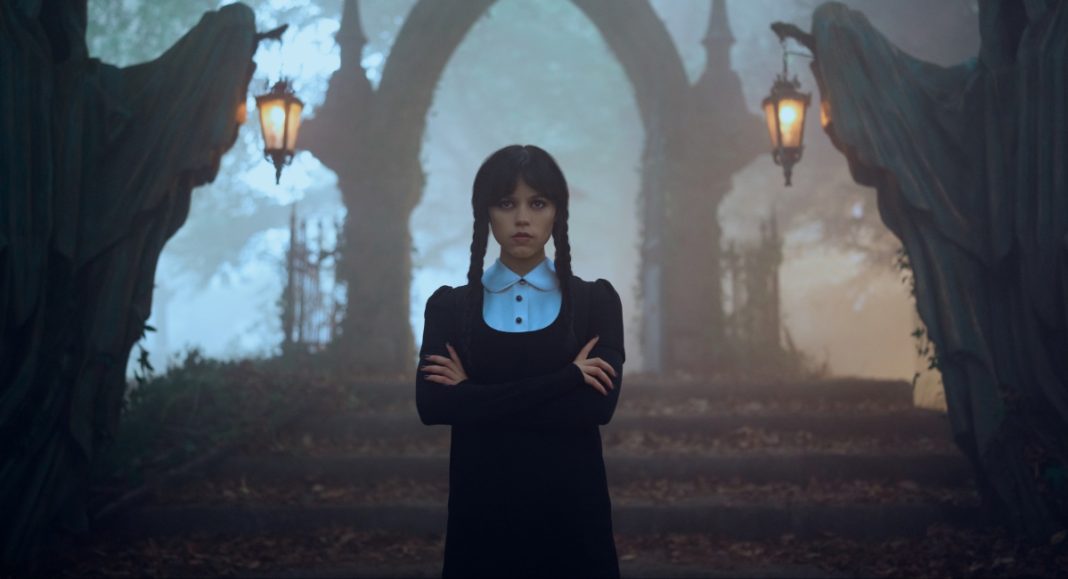Jenna Ortega, the talented star of Netflix’s Addams Family spin-off Wednesday and a rising icon in Hollywood, recently appeared on the Heart Evening Show to discuss her latest project, Death of a Unicorn. What began as a casual chat about her evening routine quickly shifted to a more profound subject: her journey living with obsessive-compulsive disorder, or OCD.
“I have pretty intense OCD,” Otega shared. “Repetitive thoughts and counting everything multiple times and having to do the same action over and over.”
She continued, candidly sharing that rest isn’t always guaranteed after a hectic day. She explained, “Sometimes my nights consist of just being really exhausted and going up and down the stairs six times because that’s what I think I need to do to make sure no one breaks into my home.”
Watch the interview with Ortega below:
“Magical thinking OCD is an OCD subtype characterized by ongoing intrusive thoughts and compulsive behaviors around superstition or magical thinking to prevent negative experiences or harm to oneself or others,” according to NOCD, an accessible, online OCD treatment center. “People with magical thinking OCD experience frequent intrusive thoughts that they will be responsible for something awful happening if they do not perform specific actions.”
Why celebrities being open about their OCD matters
For people who are OCD (or have OCD-like behaviors because of other mental health conditions, including eating disorders, body dysmorphia, or those on the spectrum), compulsive behaviors and anxieties can dominate everyday life. This reflects the phenomenon of magical thinking, a specific OCD subtype where individuals feel compelled to perform certain rituals, like flipping a switch or counting steps, because they believe that these actions will ward off negative outcomes. Even when one recognizes the irrationality, the fear remains palpable.
For busy individuals like Ortega, who have to juggle constant travel, quick routines, and the pressure to remain productive, managing OCD can become even more challenging. And fatigue can amplify compulsions, making the struggle harder to bear.
However, all subtypes of OCD, including magical thinking, are treatable, typically with a combination of medication and exposure and response prevention therapy, or ERP.
That’s why it’s so meaningful when public figures like Ortega speak openly about their experiences with OCD. When celebrities share their experiences on big platforms, it chips away at shame and misunderstanding, and it opens the door for others to recognize their own symptoms, feel less alone, and reach out for help. It’s a reminder that even the people we admire most also face mental health challenges, and that treatment not only exists, but can be life-changing.
Other celebrities who have been open about OCD include Will Poulter, who has opened up about the “cruel truth” of his OCD thoughts, Amanda Seyfried, who has talked about her struggles with health anxiety, an OCD subtype, and Lili Reinhart, who has been diagnosed with OCD since elementary school.
To learn more about magical thinking OCD, check out Pan Cooke‘s graphic memoir, Puzzled.












